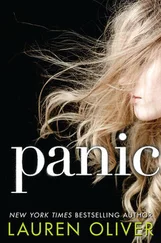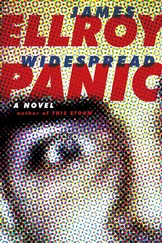In the bathroom, three flights up and technically in a different building, yawning wives professed with pride to an inability to sleep in planes, trains, and automobiles, enthusiastically enumerating neuroses while a tall lady in a lavish gown vomited into the sink. Squeezing through a narrow, jagged passageway made by the backs of chairs, Frida’s butt was pinched. Her response was lethargic. A somnambulist would’ve about-faced quicker. The perpetrator was the plain man with the puffy face. He recoiled, reddening, but it did no good — slyness was built into the curve of his nonexistent lips. Zeal, for everything, oozed from his pores.
Pardon, mademoiselle, he said, and pointed to the woman for whom the pinch had been intended. Two sensations overcame Frida: horror that her butt was interchangeable with that matronly derriere, and love…
Of course out of everyone I had to pick Pasha’s future daughter-in-law to harass. He already thinks I’m a creep.
I’m not—
Going to tell? If you want, I can do it again.
That’s OK, said Frida, maybe some other time.
Good luck to you. You’re marrying into literary aristocracy!
Frida smiled sweetly, but the words left her feeling unsettled in a Shakespearean sort of way, as if everybody were in cloaks and disguises, saying one thing, meaning another.
Unlike all the moths in the light, Pasha stayed in the same seat with his elbows on the table. Frida, in the dual role of Niece and Daughter-in-Law, became a routine pit stop for the poets. One by one they came to tell her in what high esteem they held Pavel Robertovich. Her uncle was the Brodsky-of-our-time, dorogoy drug i velikiy poét (a dear friend and great poet), whose poetry built emotion through a fantastic accrual of detail, whose situation in Odessa was an impossible one, and were he not such an obstinate, principled, intransigent man, he would’ve left Odessa long ago; that this town had been abandoned by history and didn’t need a martyr in the shape of an aging, bearded Russian-Jewish-Christian poet (though it is quite charming when you think about it); that he should’ve moved to New York or at least Moscow, cosmopolitan cities in which he had friends, readers, supporters ready to help him in any way they could, where he could meet more like-minded people, or at least those with common interests and thicker wallets and an appreciation, no matter how misguided, for what he was doing, for what was essentially his life project; that though ideally he should’ve made this move decades ago, it still wasn’t too late — however, there was no point in telling him this, he simply wouldn’t listen, the man couldn’t be reasoned with; that in Odessa he had only enemies and his tactic of ignoring them for half the year, then launching ferocious, no-longer-relevant counterattacks on his LiveJournal page during the other half was just making these enemies more rabid; that he wasn’t taking proper care of himself and looked far worse this year than he had the last (this surprised Frida — her uncle seemed incapable of looking better or worse, as if centuries couldn’t touch him); that Sveta should put him on a diet; that he had never before seemed so happy with his domestic situation, and thank God he’d finally gotten rid of that snake Nadia; that a lot of people may be saying things to her about Pasha but not even all of his friends, so-called, had his best interests in mind, and it would be wise for her to listen with a grain of salt; that particularly the Berlin group had to be kept an eye on; that it’s not hard to understand why people got so sentimental about Odessa; that in fact it was impossible to understand; that perhaps what annoyed people most was that Pavel Robertovich didn’t drink like a real poet; that what possibly irritated some was that Pasha never gave praise, or at least was terribly stingy in that department; that he refused to gossip; that according to him everything fell under the rubric of gossip; that he never met anybody on the other person’s terms; that he expected others to read his work but didn’t take the time to read theirs; that people were fallible, and such things got to them; that she, Frida, actually bore a resemblance to her uncle, which wasn’t immediately obvious but emerged upon speaking to her, as she somehow had the same manner, the way she held her head, and also something in the eye and forehead region.
Frida listened, nodding, neck pain. Having spoken their piece, they asked a single question of her. Learning that she wasn’t a poet, not even a prose writer, they returned to their peers. In between these brief encounters, Frida glanced over at her uncle, who kept sitting in that corner with his elbows on the table, and each time he looked a bit altered, enshrouded. Toward evening’s end, the café clearing though it was unclear just how quickly as smoke impaired visibility, an older woman with owl eyes and the matronly derriere to which the pinch rightfully belonged approached Frida. Perfectly sober, she took pride in her controlled manner, as if she were a cheetah that had tamed itself. Studying Frida, she said in English that was accented, mannered, and perfumed, Lawyer or accountant?
Neither, Frida said quite proudly.
I didn’t think so. Tell me you’re a dentist and I’m leaving.
Medical school — just finished my first year.
Congratulations, said the woman, stifling a yawn.
But I’m not going back.
So it gets interesting.
Frida beamed.
Your poor parents — they must be heartbroken.
They don’t know yet, said Frida, trying out a deranged fantasy on this ridiculous lady. The heartbreak will come later — first it’ll be wrath. But they can’t force me back to school when I’m half the world away.
So you’re here waiting out the wrath?
I’m getting to know the family.
The woman introduced herself. She was Renata. This was said as if it were common knowledge what a Renata was, in theory. Being Renata was like being atheist or vegetarian. Most people gave their names and their hands; they didn’t truly introduce themselves. Renata truly introduced herself. There was a deluge of epithets: poet, essayist, psychoanalyst, wife, mother, mystic, Jew, woman.
Keep going and you’ll get to dentist, said Frida.
Are you as incorrigible as your uncle?
I wouldn’t know. We haven’t exactly been engaging in long conversations — or conversations of any kind, for that matter.
You see the two men he’s been talking to the entire night? Does it surprise you that they’re the most famous men in the room?
Yes. Nobody here seems famous.
Renata sighed. Nobody was a stranger to her. She dealt in psychological tendencies.
Whatever you’re implying, said Frida, don’t. I’ve heard my fill. Those men look interesting.
Those men are interesting. What it comes down to is that they’re men.
So he’s a misogynist as well?
Have you read Svetlana’s poetry?
Who’s Svetlana?
Your aunt.
Pasha’s wife? Sveta? She’s a poet, too?
A far more modern and thrilling one than your uncle, if you care for my opinion. I’m not alone in it. Svetlana’s a prodigious talent, but fully eclipsed by your uncle. It’s a shame — all that thwarted potential. Sure he claims to support her writing, the way Picasso might encourage his three-year-old to paint. He’s terribly condescending, and she doesn’t even notice. She worships him. The trouble with me was that I never worshipped him. I considered him an outstanding poet — his early poems were in a different league from the stuff of recent years — and I happily introduced him to the who’s who of the émigré scene. But once I had no more to offer, he washed his hands of me. He stopped writing letters, stopped sending manuscripts. He dedicated a whole collection to me after his last visit to New York, poems I can’t bear to reread. There’s an openness, a frankness, even a dash of romanticism. I’ve decided that I myself invested the poems with earnestness. Pasha would like to be an earnest man, but he’s not an earnest man. Perhaps that’s a central conflict. He’s not earnest, nor is he full of faith. You know what he’s full of? Himself. But don’t be lazy. Read your uncle’s poetry, especially his first collection — you may find it interesting — it’s about your family after all.
Читать дальше












